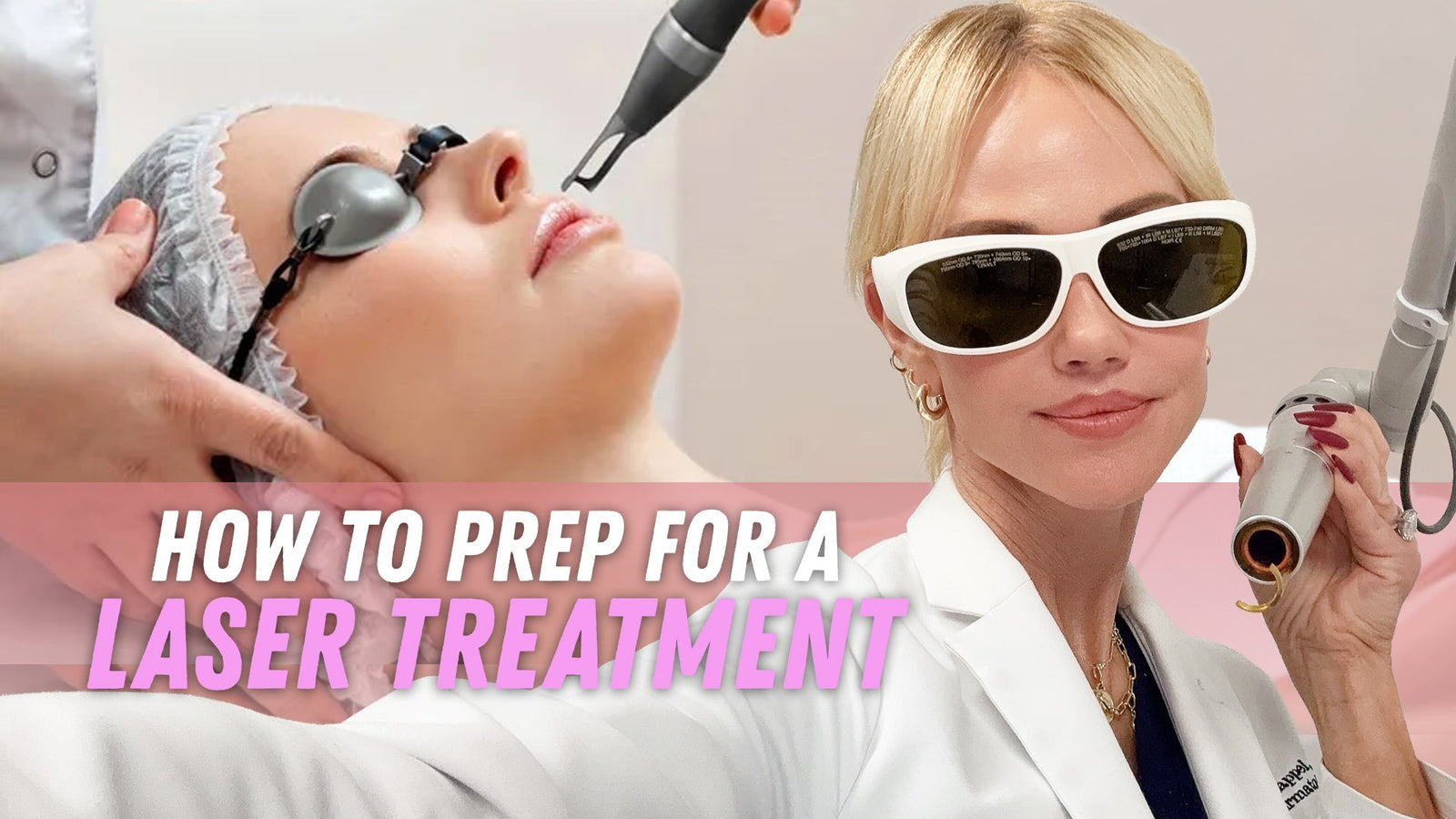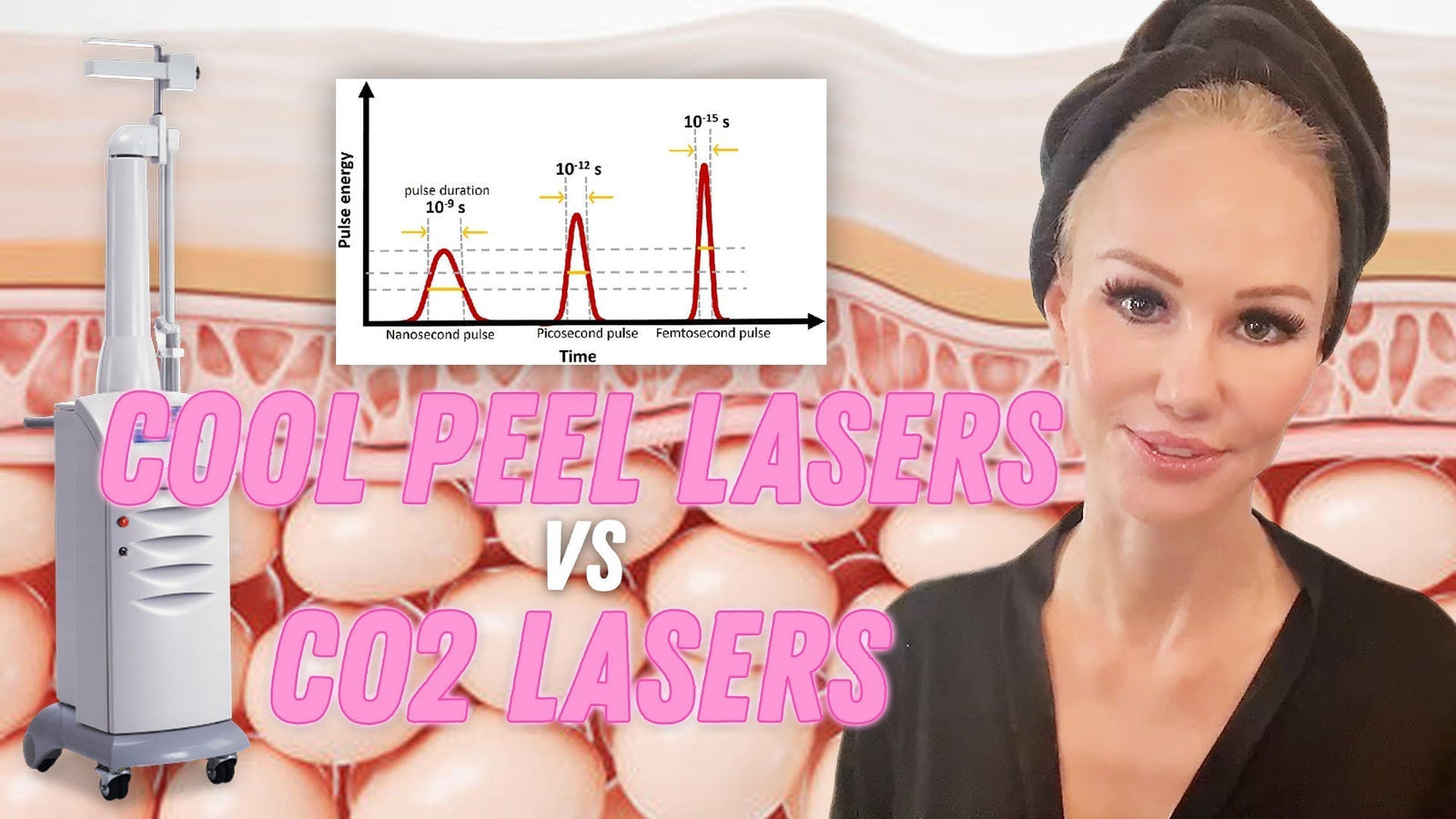But is retinol truly the skincare fountain of youth it's made out to be?
In this comprehensive guide, we'll delve deep into the science of retinol for anti-aging and how to use retinol, equipping you with the knowledge you need before adding this powerhouse ingredient to your skincare regimen.
For more details, check out the related video on YouTube to learn more about the benefits of retinol for anti aging.
The Science Behind Retinol and Anti-Aging
What is Retinol? What Are Retinoids?
Retinoids are a group of compounds derived from vitamin A. They come in various forms, including retinol, retinaldehyde, retinoic acid, and more. These compounds have multiple mechanisms of action in promoting healthier, more youthful skin.
- Collagen Synthesis: Retinoids stimulate collagen synthesis, a critical protein that keeps our skin firm and youthful.
- Trans Epidermal Time: Retinoids help regulate the skin's turnover rate, reducing the time it takes for new skin cells to reach the surface.
- Dermal-Epidermal Junction: They thicken the dermal-epidermal junction, contributing to the skin's structural integrity.
- Skin Barrier: Retinol strengthens the skin barrier, protecting it from environmental pollutants and UV damage.
- Collagenase Regulation: They reduce the activity of enzymes like collagenase, which break down collagen. This protection is crucial for anti-aging and overall skin health.
Trans Epidermal Time and Youthful Skin
Trans epidermal time is the time it takes for new skin cells to mature and reach the surface. In youthful skin, this process takes about 28 days, resulting in a fresh, revitalized complexion. However, as we age, trans epidermal time can slow down, leading to dull, hyperpigmented skin.Retinol and other vitamin A derivatives can reverse this process, bringing back that youthful 28-day trans epidermal time and giving your skin a glassy, refreshed appearance.
Retinol Benefits
Retinol for Hyperpigmentation
One of the remarkable benefits of retinol is its effectiveness in addressing hyperpigmentation. Retinol inhibits the enzyme tyrosinase, responsible for melanin production, which can help fade brown spots and even out skin tone.
Retinol for Anti Aging
Retinol's impact on collagen synthesis and skin cell turnover makes it an ideal anti-aging ingredient. By increasing collagen production, protecting existing collagen, and improving skin structure, retinol helps reduce the signs of aging.
Other Benefits of Retinol
Beyond anti-aging and hyperpigmentation, retinol contributes to healthier, happier skin. It reduces the risk of pre-cancers, enhances the skin's vitality, and provides a beautiful, natural glow.
How to Use Retinol
Retinol Mistakes: What are the side effects of Retinol?
The most common mistake when incorporating retinol is using too much, too soon. To avoid irritation and sensitivity:
Start Slow: Begin with a lower percentage or a less potent class of retinol.
Build Tolerance: Gradually increase usage as your skin adjusts.
Consider Climate: Your skin's response can change with climate and humidity levels.
Using too much retinol too soon can cause dry skin, peeling, and irritation.
Retinol Mistakes: Types of Retinoids
Retinoid Classes
Understanding retinoid classes is essential. Start with an over-the-counter retinol and consider the following options:
Retinol Esters: A gentler option for beginners.
Retinaldehyde: A one-step closer conversion to retinoic acid.
Retinoic Acid Esters: Suitable for sensitive skin, offering similar benefits.
Tretinoin and other retinoids
While retinol is a well-known and widely used form of vitamin A in skincare, it's important to note that there are other variations of retinoids available. One of the most potent forms is tretinoin, also known as retinoic acid. Tretinoin is a prescription-strength retinoid that has been extensively studied for its anti-aging and acne-fighting properties.Apart from tretinoin and retinol, there are other over-the-counter retinoids. These have varying levels of potency and are often used in skincare products to offer alternative options for different skin types and levels of sensitivity.
Here's a brief overview of these retinoids:
Tretinoin (Retinoic Acid): Available by prescription, tretinoin is the most potent retinoid. It's highly effective for reducing wrinkles, fine lines, and acne but can be harsh on the skin.Retinaldehyde: This retinoid is intermediate in strength between retinol and tretinoin. It can provide significant anti-aging benefits with potentially less irritation.
Retinyl Palmitate: The mildest form of retinoid available in over-the-counter products. It's a good option for those with sensitive skin or those who are new to retinoids.
When considering which retinoid to incorporate into your skincare routine, it's essential to assess your skin's specific needs and consult with a dermatologist if you're unsure. Tretinoin requires a prescription and should be used under medical supervision due to its strength and potential side effects. Over-the-counter retinol, retinaldehyde, and retinyl palmitate products are more readily available but should still be used with care to avoid overuse and irritation.

What Percentage of Retinol Should I Use?
Retinol skincare products come in various concentrations, typically ranging from 0.25% to 2%. The percentage of retinol in a product is a crucial factor that determines its strength and potential benefits. Let's break down what these percentages mean:
- **0.25%**: This is considered a low concentration of retinol and is often recommended for beginners or those with sensitive skin. It provides a gentle introduction to the world of retinol, helping the skin build tolerance over time.
- **0.5% to 1%**: Products in this range offer a moderate level of retinol and are suitable for those who have used retinol before or have normal skin. They can help improve skin texture, reduce fine lines, and promote a more youthful appearance.
- **1.5% to 2%**: These concentrations are on the higher end of the spectrum and are typically recommended for experienced retinol users with specific anti-aging goals. They can be more potent and may deliver faster results but should be used with caution, especially by those with sensitive skin.
The choice of retinol percentage should align with your skincare goals and skin type. It's essential to start with a lower concentration if you're new to retinol and gradually work your way up as your skin becomes accustomed to it. Additionally, always follow the product's usage instructions and consider consulting a dermatologist for personalized advice on the ideal retinol percentage for your skin.
Should I Mix Retinol with Moisturizer?
Retinol Sandwich Method
Mixing retinol with a hydrator or moisturizer can reduce sensitivity without compromising efficacy. This buffering method helps your skin adapt more comfortably to retinol.
How Long Does Retinol Take To Work?
Everyone will respond differently to Retinol. The time it takes for you to see the benefits of retinol may be longer than someone else, but don’t get discouraged. Sticking to a Retinol routine can result in amazing transformations in skin appearance over time.
Allow for a Two-Day Delay
Keep in mind that there's often a two-day delay before your skin manifests the effects of retinol. Patience is key when introducing this ingredient into your routine.
How Often Should I Use Retinol?
If you're increasing retinol usage, give your skin time to adapt. Move from once a week to twice a week, and so on, as your tolerance builds.
Is Retinol an Exfoliant?
While retinol is not an exfoliant, it can work in tandem with exfoliating acids like AHAs and BHAs. However, be cautious when using both simultaneously and ensure your skin can handle the combination.Does Retinol Thin the Skin?
Contrary to popular belief, retinoids do not thin the skin. They reduce the thickness of the stratum corneum, the outermost layer, while thickening the dermis where collagen and elasticity are located. This creates a healthier, more youthful appearance.
Is Retinol an Exfoliant?
Retinoids are often mistaken for exfoliants, but they don't work by cutting desmosomes like exfoliating acids. Instead, they promote skin cell turnover in a different way, enhancing the natural renewal process.
Your Path to Ageless Skin
Incorporating retinol into your skincare routine can be a transformative journey towards healthier, more youthful skin. With patience, the right approach, and an understanding of how retinol works, you can unlock the full potential of this anti-aging superstar.
Remember, everyone's skin is unique, so what works best for you may require some experimentation.
Consult a dermatologist if you have specific concerns or questions about using retinol in your skincare regimen. Start slow, stay consistent, and embrace the radiant, ageless skin that retinol can help you achieve.
RETINOL IN MDAiRE
If you’re looking for an MDAiRE product with Retinol, check out our: RXR Retinol Anti-Aging Serum
Make sure to check out our other MDAiRE products for anti-aging skincare



